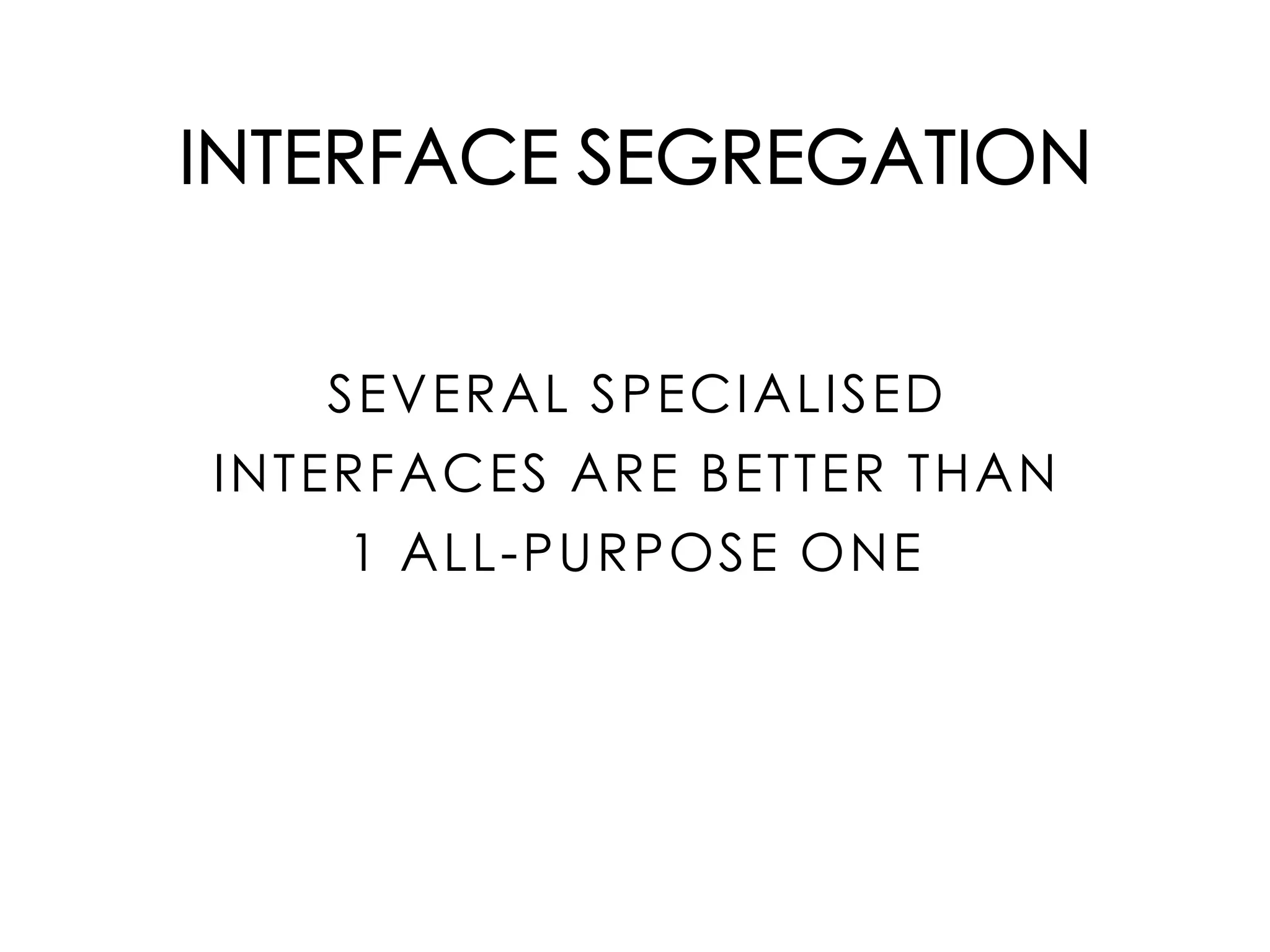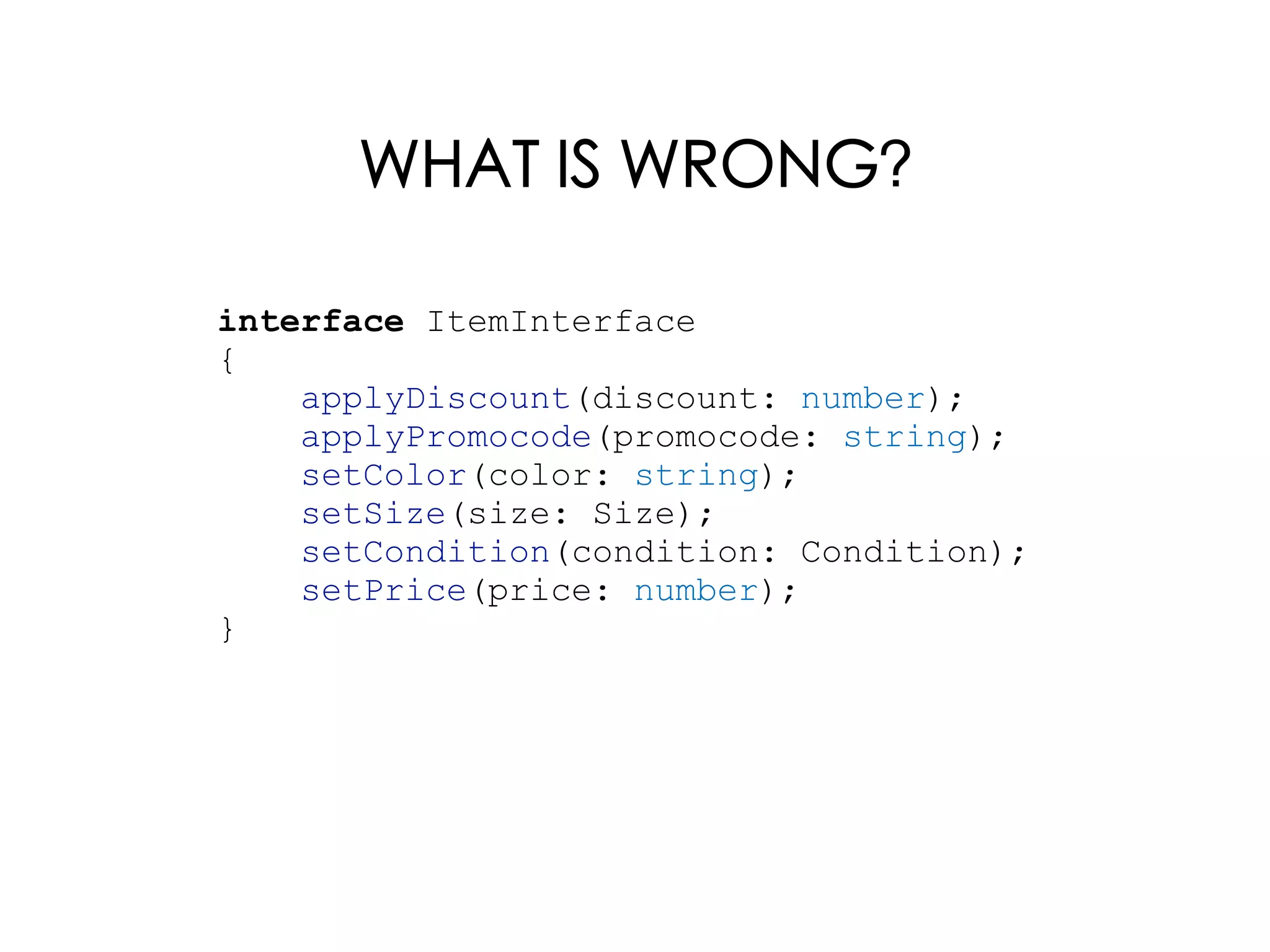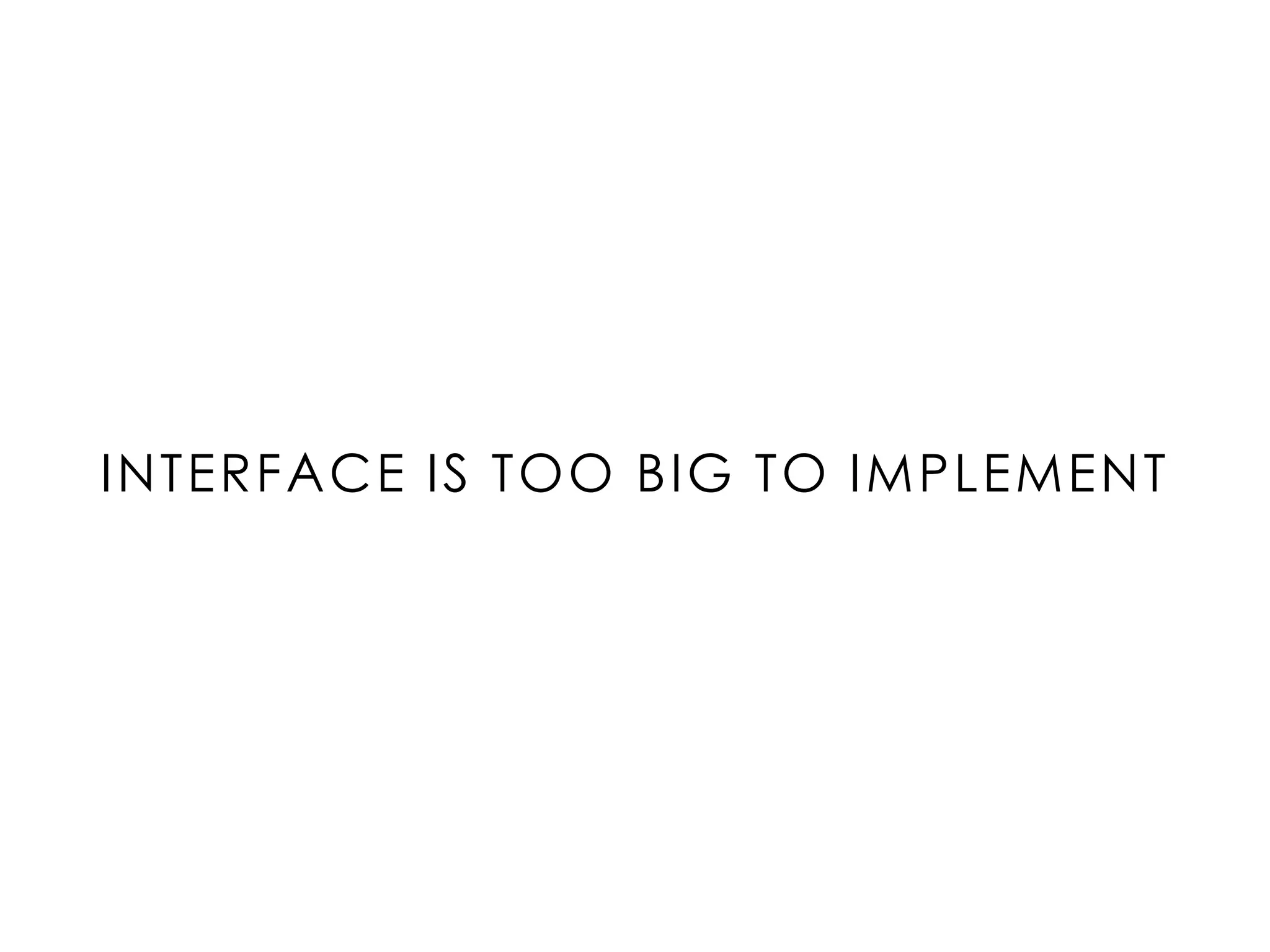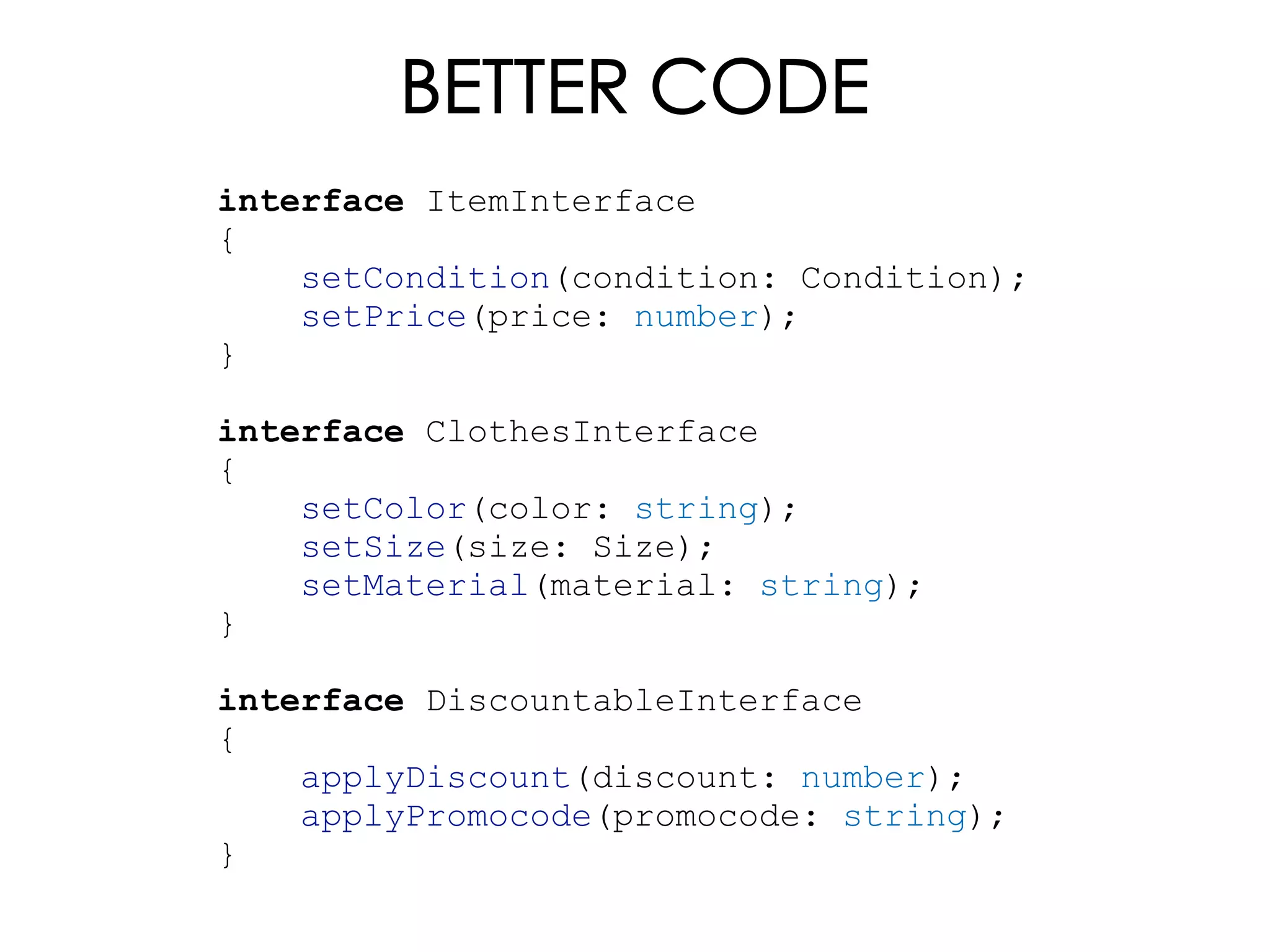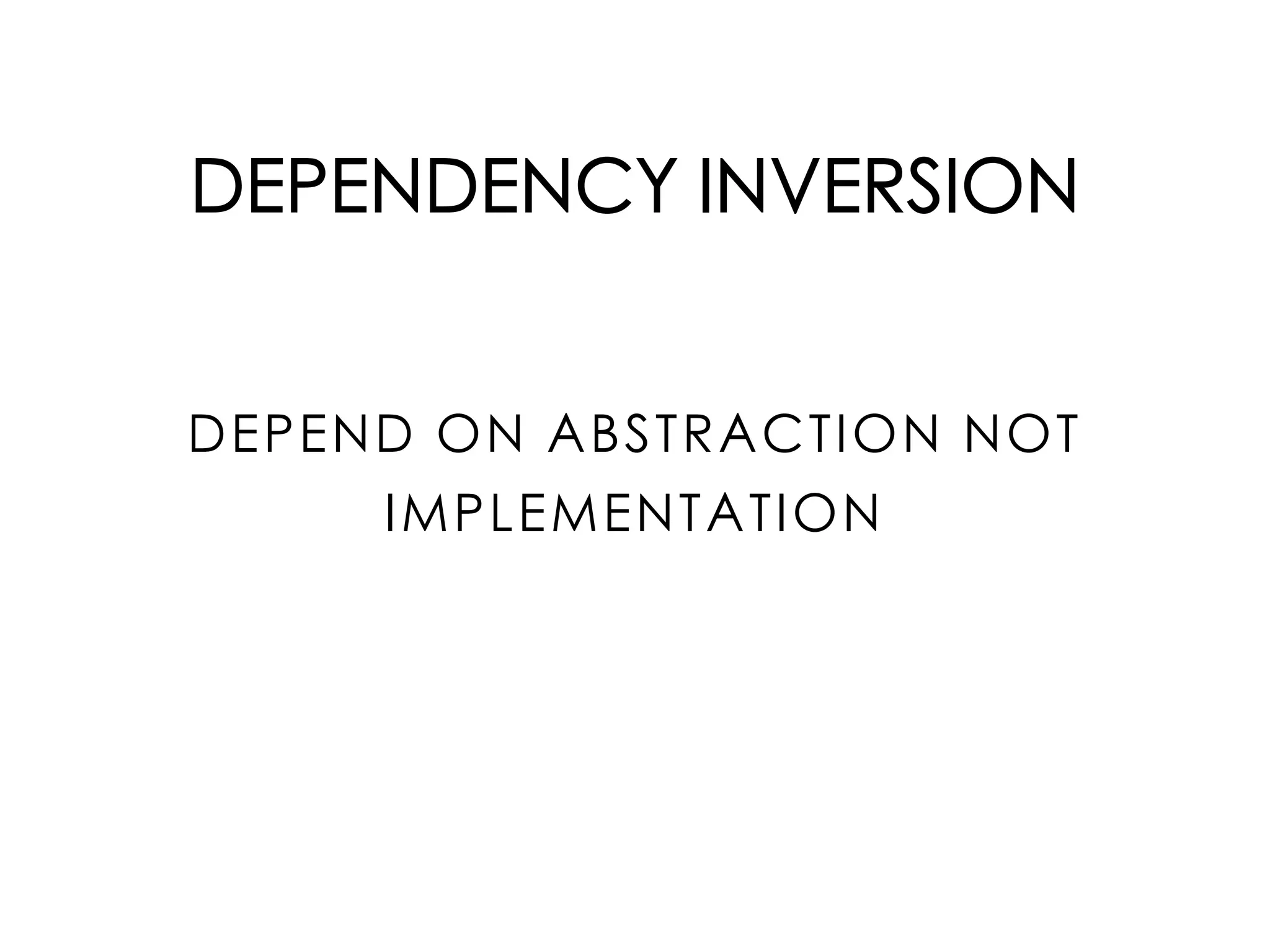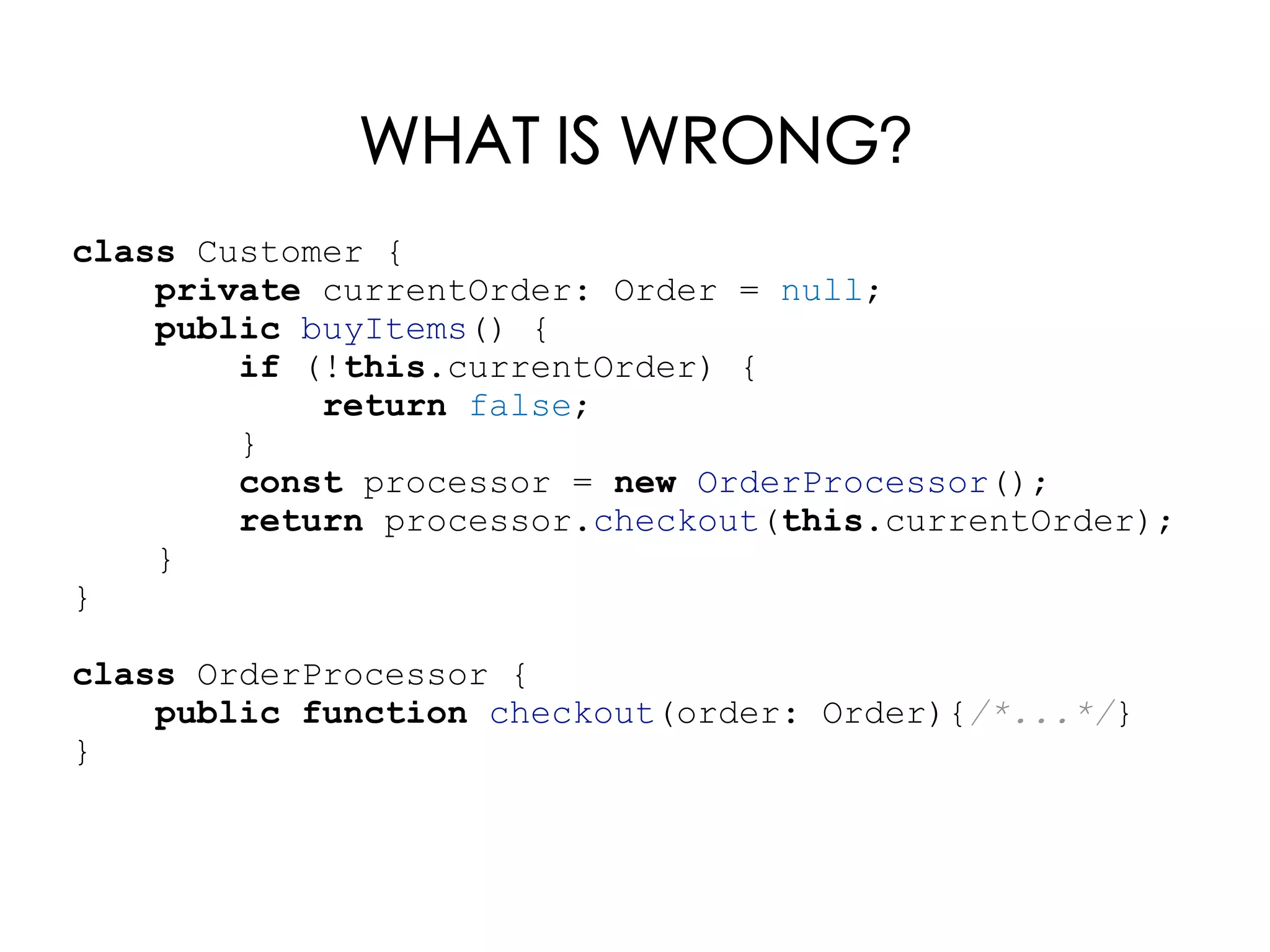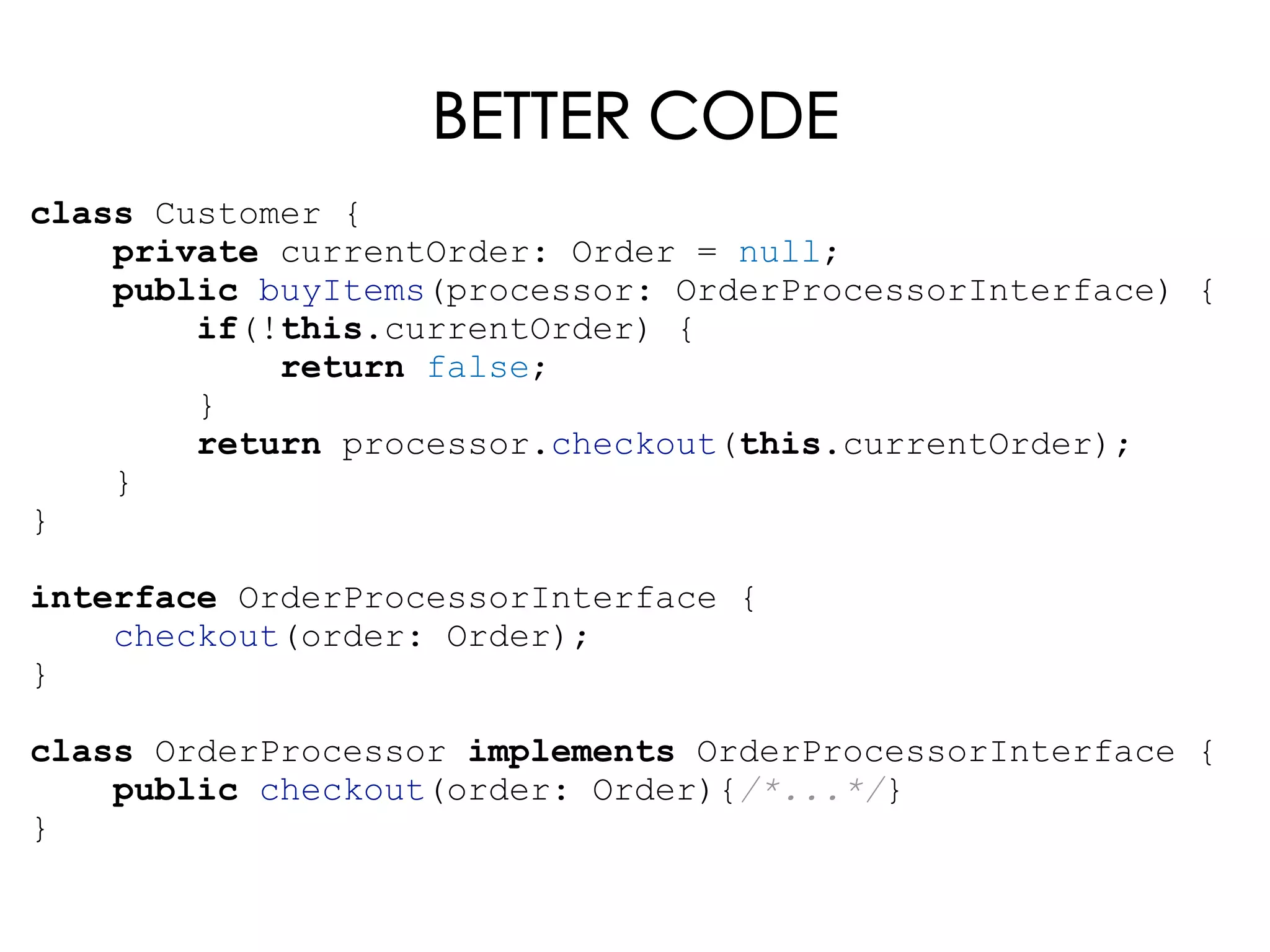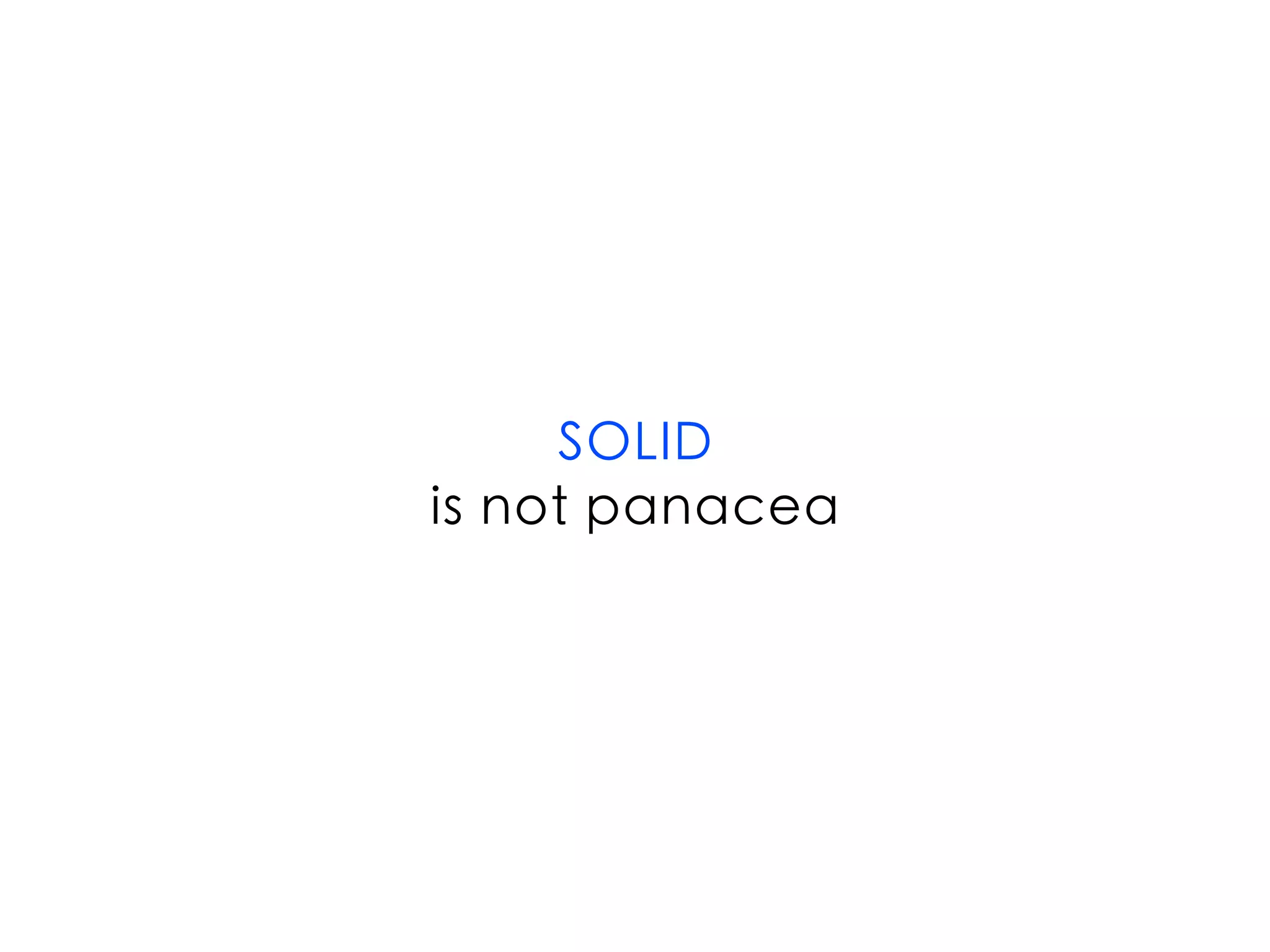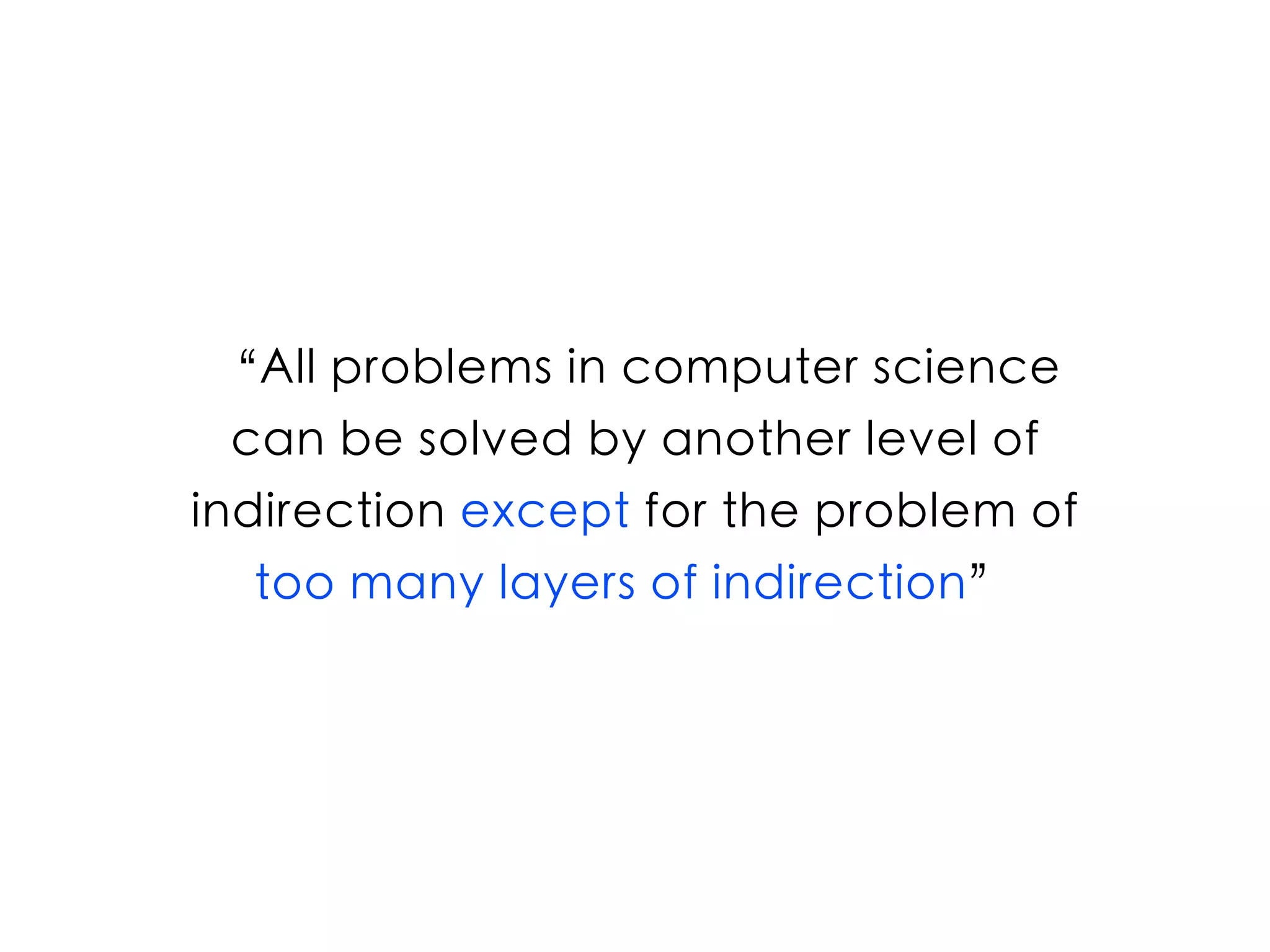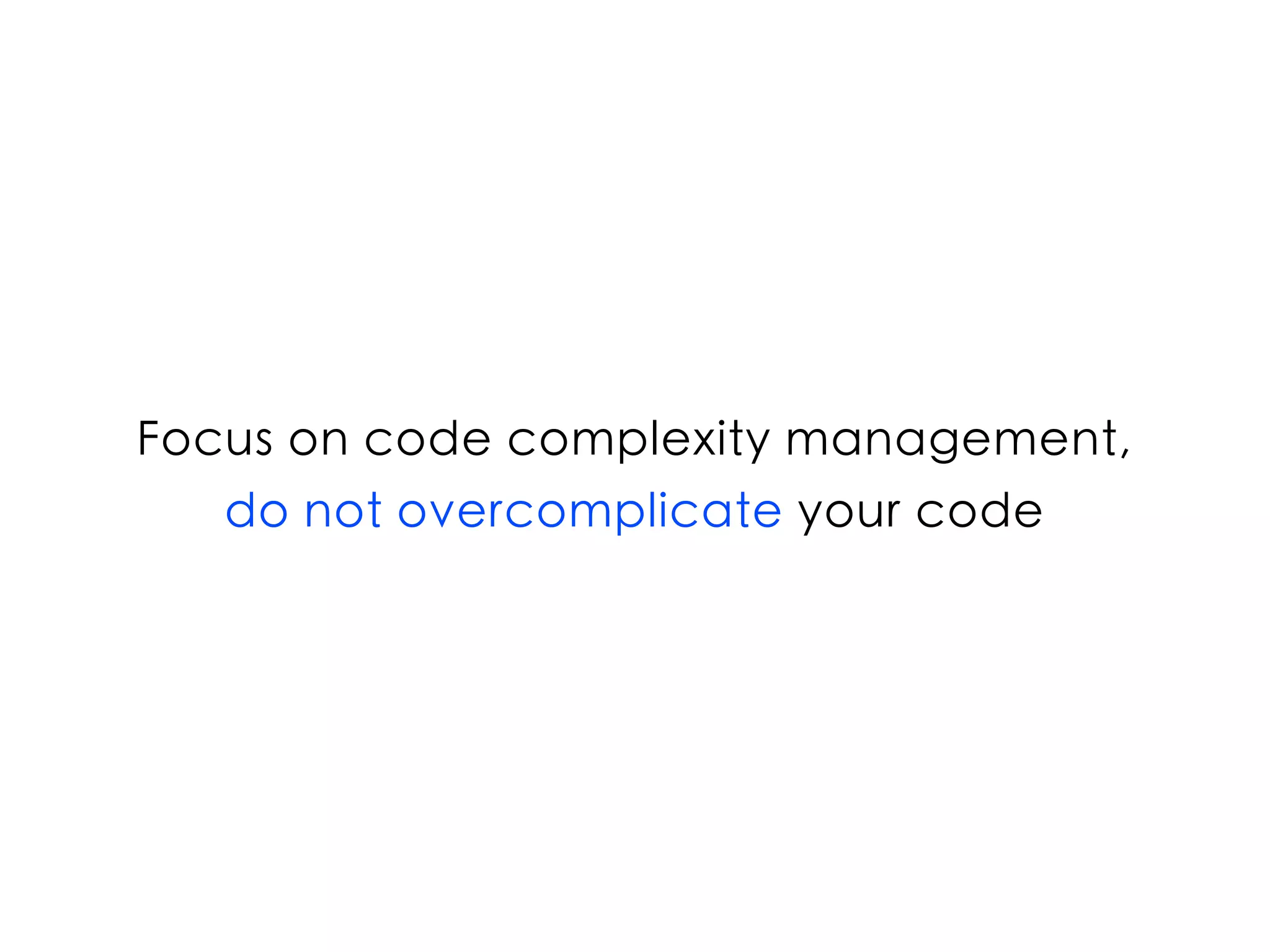This document discusses the SOLID principles of object-oriented design: single responsibility, open-closed, Liskov substitution, interface segregation, and dependency inversion. It provides examples of poor code that violates these principles and better code that adheres to them. The principles are explained to make code more maintainable, extensible, and flexible through loose coupling, high cohesion, and abstraction. While SOLID is useful for managing complexity, it should not be overapplied if it introduces unnecessary layers.
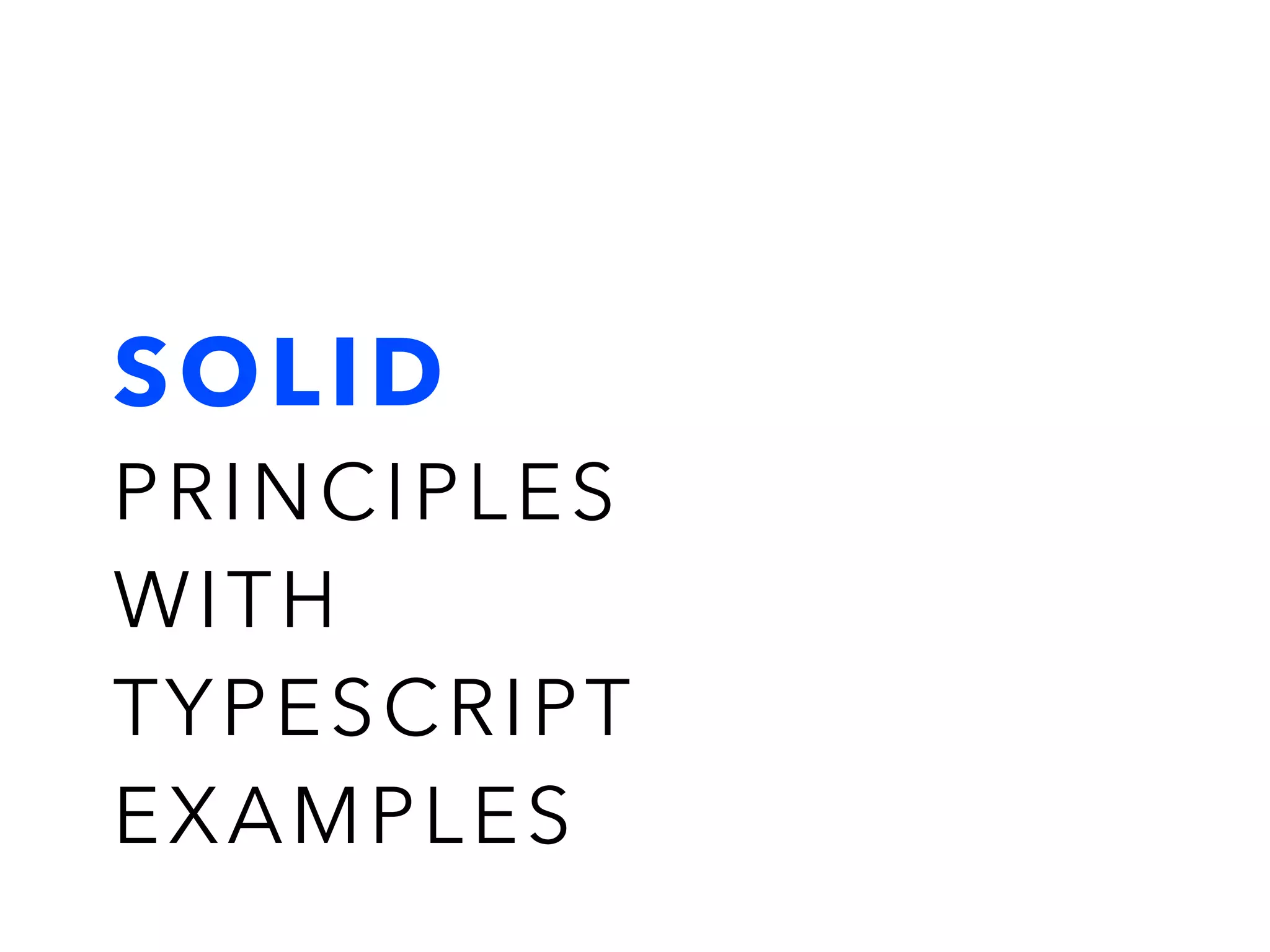

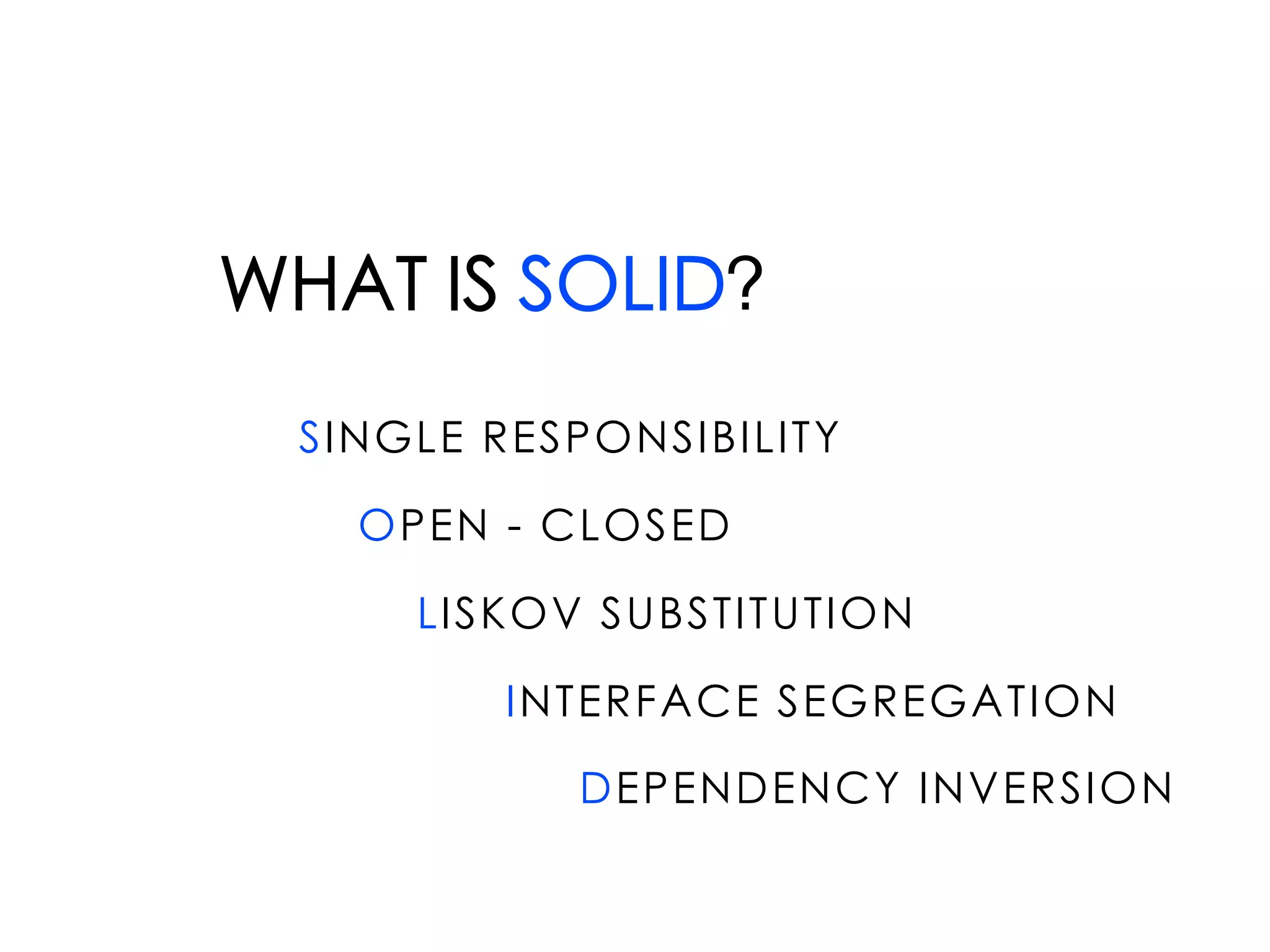

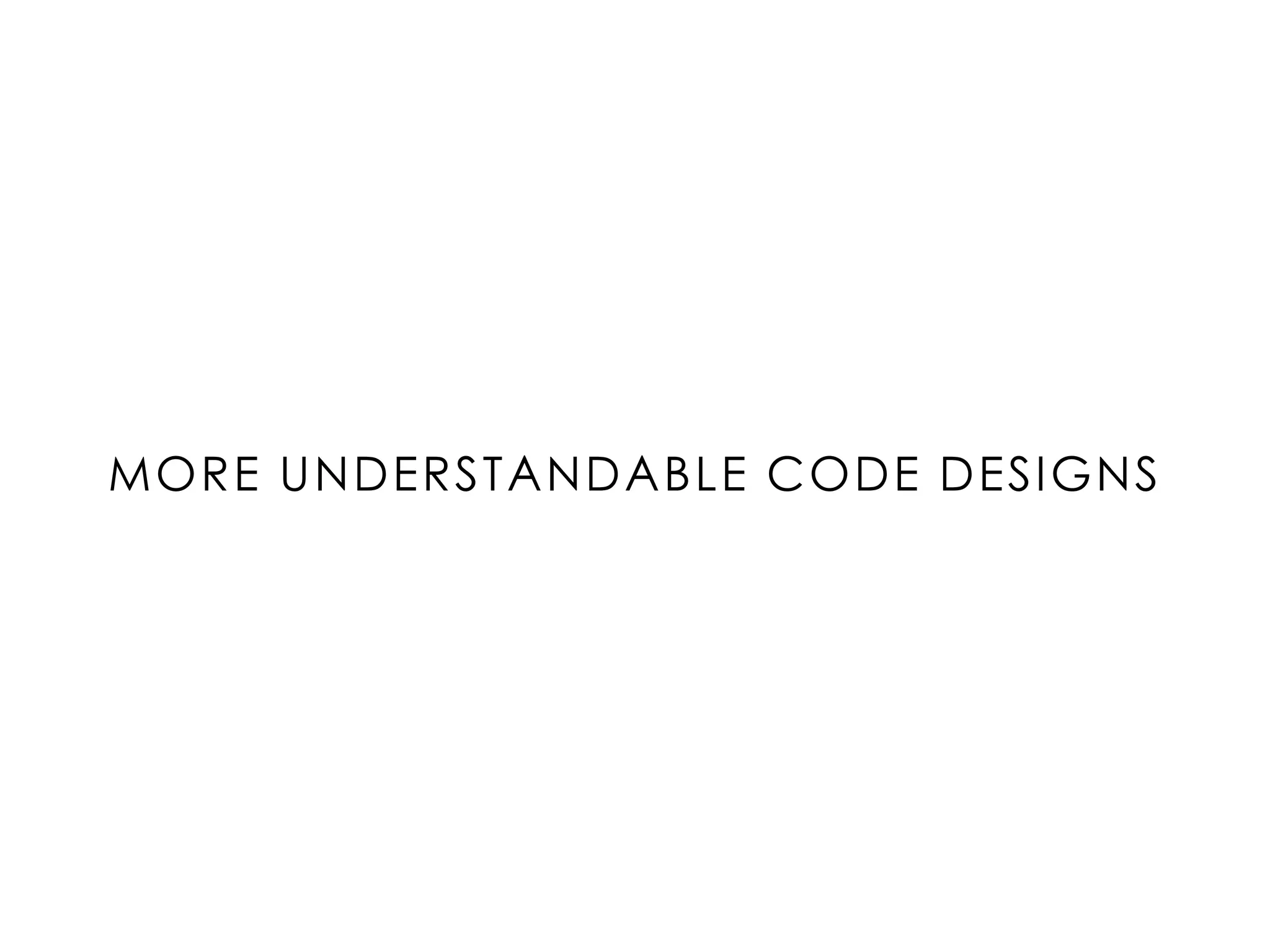



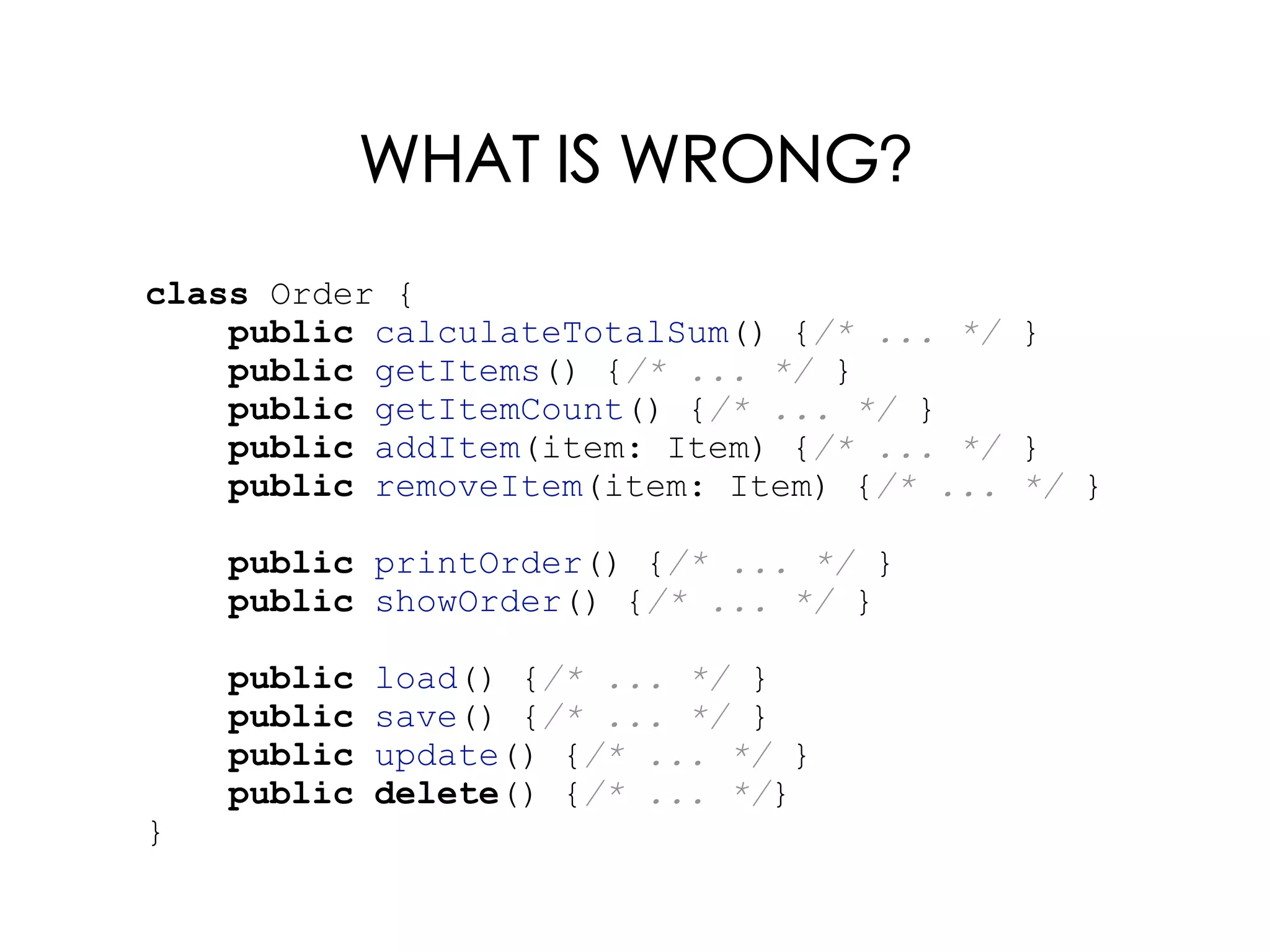



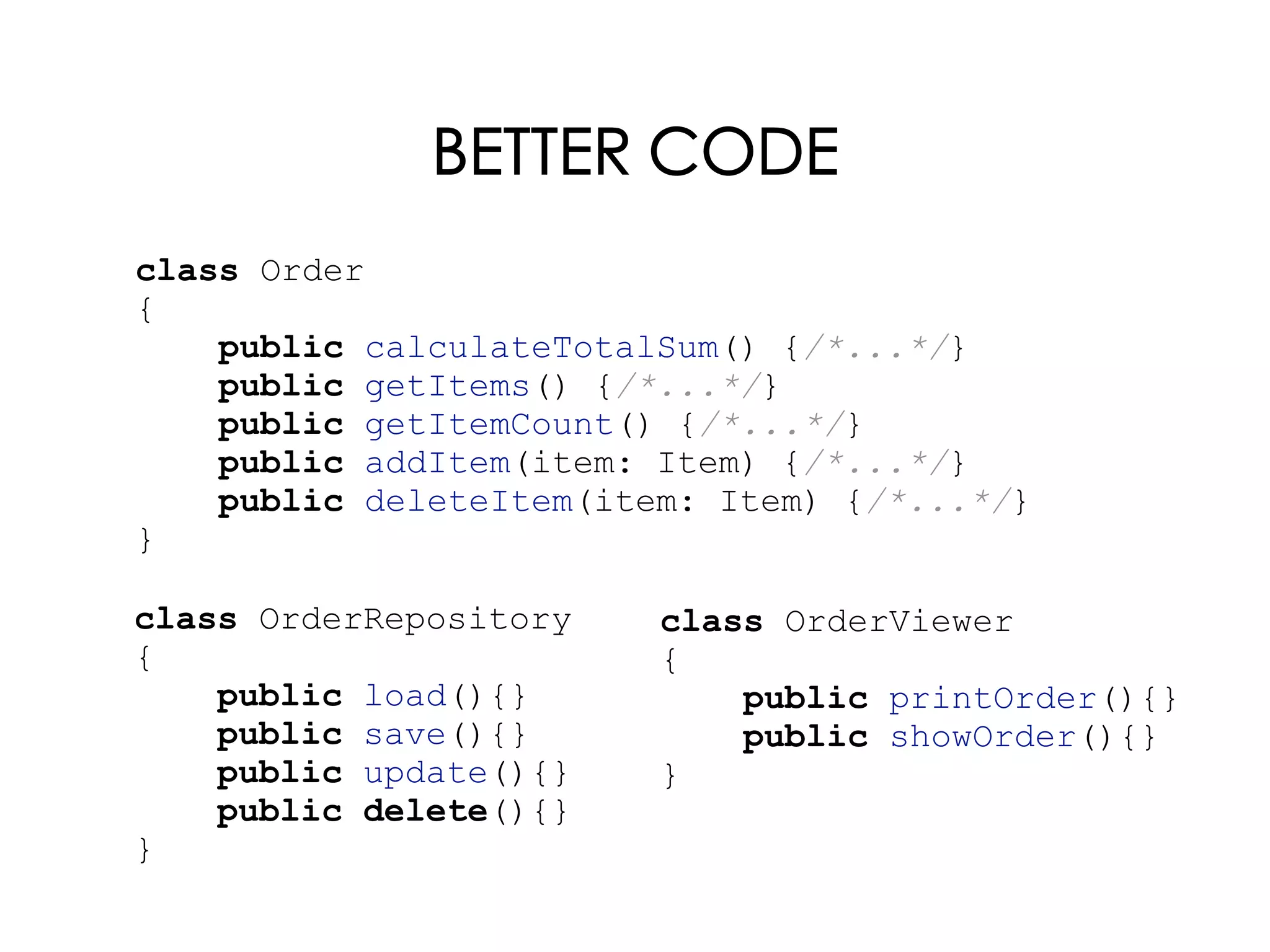

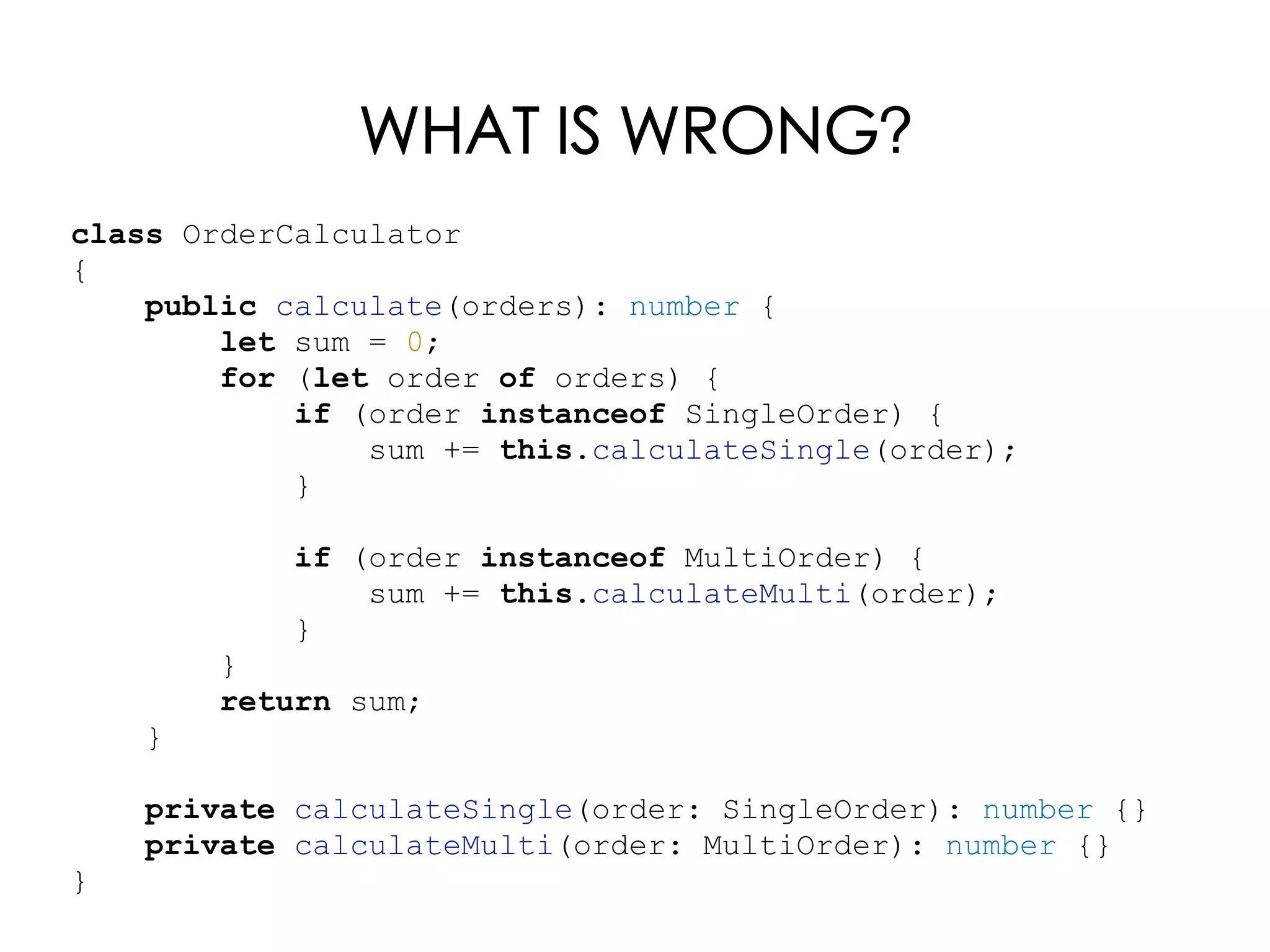


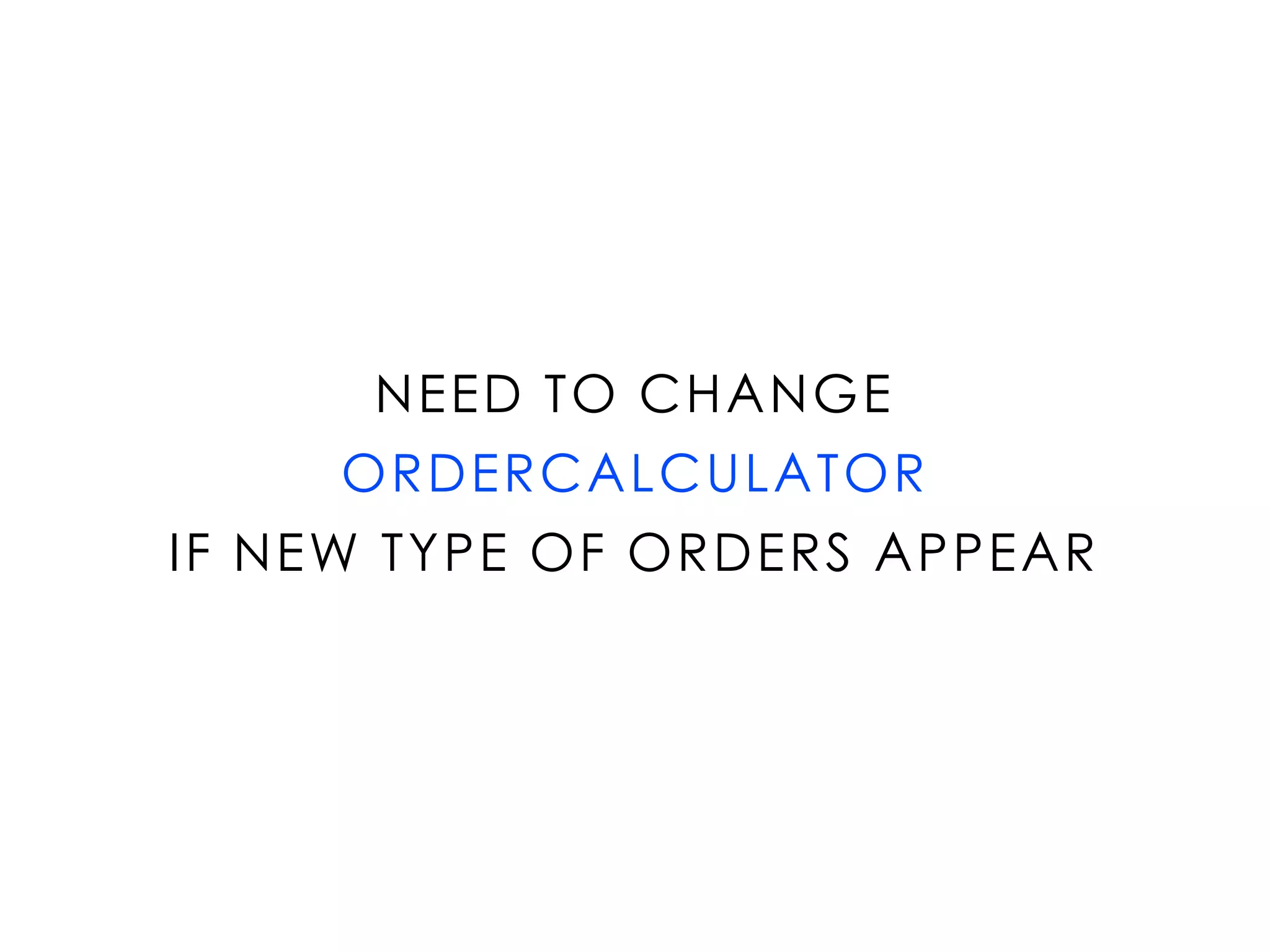
![BETTER CODE
class OrderCalculator {
public calculate(orders: OrderInterface[]){
let sum = 0;
for (let order of orders) {
sum += order.calculate();
}
return sum;
}
}
interface OrderInterface {
calculate(): number;
}
class SingleOrder implements OrderInterface {
calculate(): number {}
}
class MultiOrder implements OrderInterface {
calculate(): number {}
}](https://image.slidesharecdn.com/solid-191213105207/75/SOLID-principles-with-Typescript-examples-19-2048.jpg)
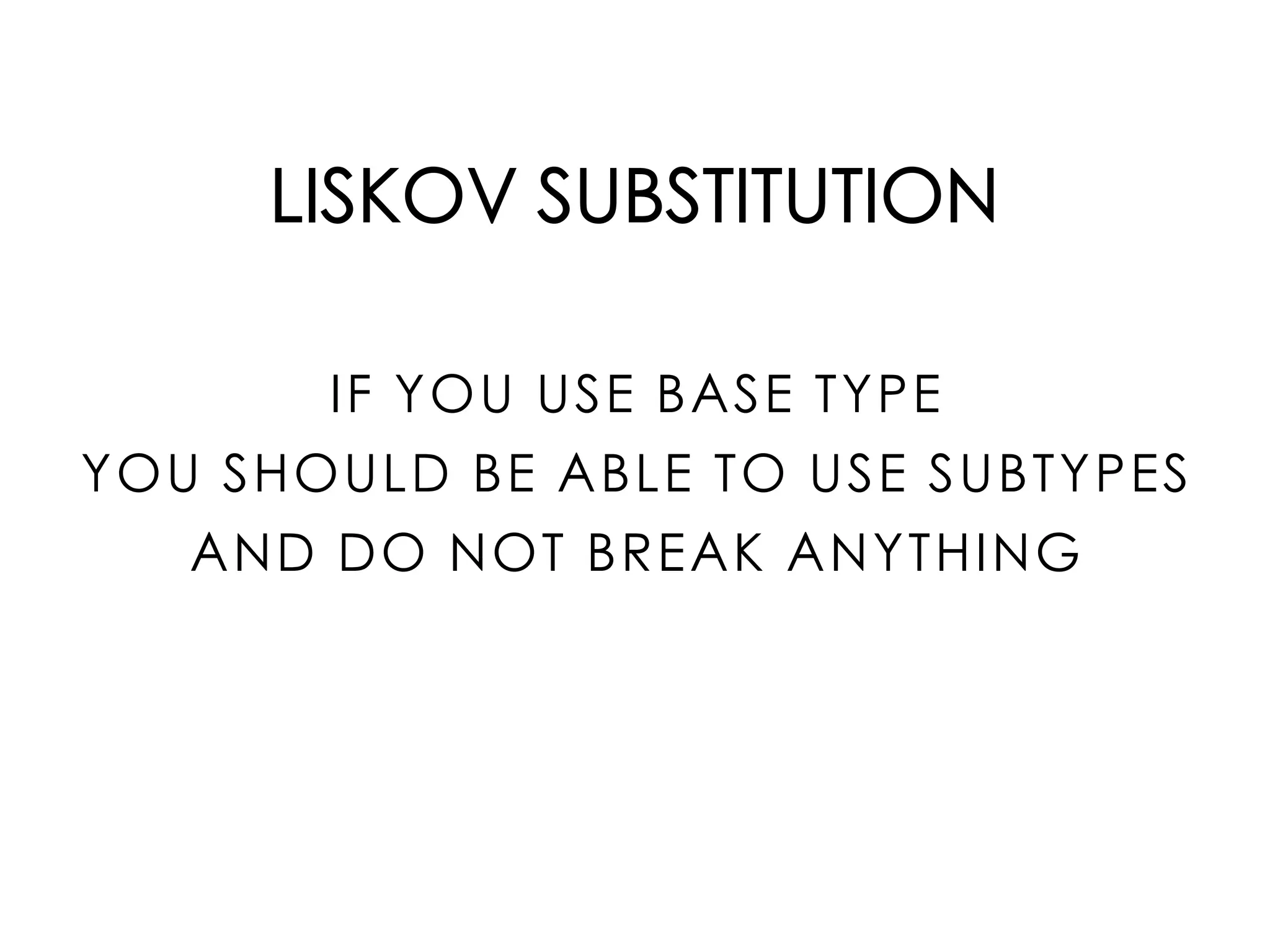
![WHAT IS WRONG?
class Order {
protected items: Item[] = [];
public addItem(item: Item) {
this.items.push(item);
}
public getItems() {
return this.items;
}
}
class OrderCollector {
public collect(order: Order, items: Item[]) {
for (let item of items) {
order.addItem(item);
}
}
}](https://image.slidesharecdn.com/solid-191213105207/75/SOLID-principles-with-Typescript-examples-21-2048.jpg)

![WHAT IS WRONG?
class Order {
protected items: Item[] = [];
public addItem(item: Item) {
this.items.push(item);
}
public getItems() {
return this.items;
}
}
class FreeOrder extends Order {
public addItem(item: Item) {
if (item.price() !== 0) {
throw new Error();
}
this.items.push(item);
}
}
class OrderCollector {
public collect(order: Order, items: Item[]) {
for (let item of items) {
order.addItem(item);
}
}
}](https://image.slidesharecdn.com/solid-191213105207/75/SOLID-principles-with-Typescript-examples-23-2048.jpg)

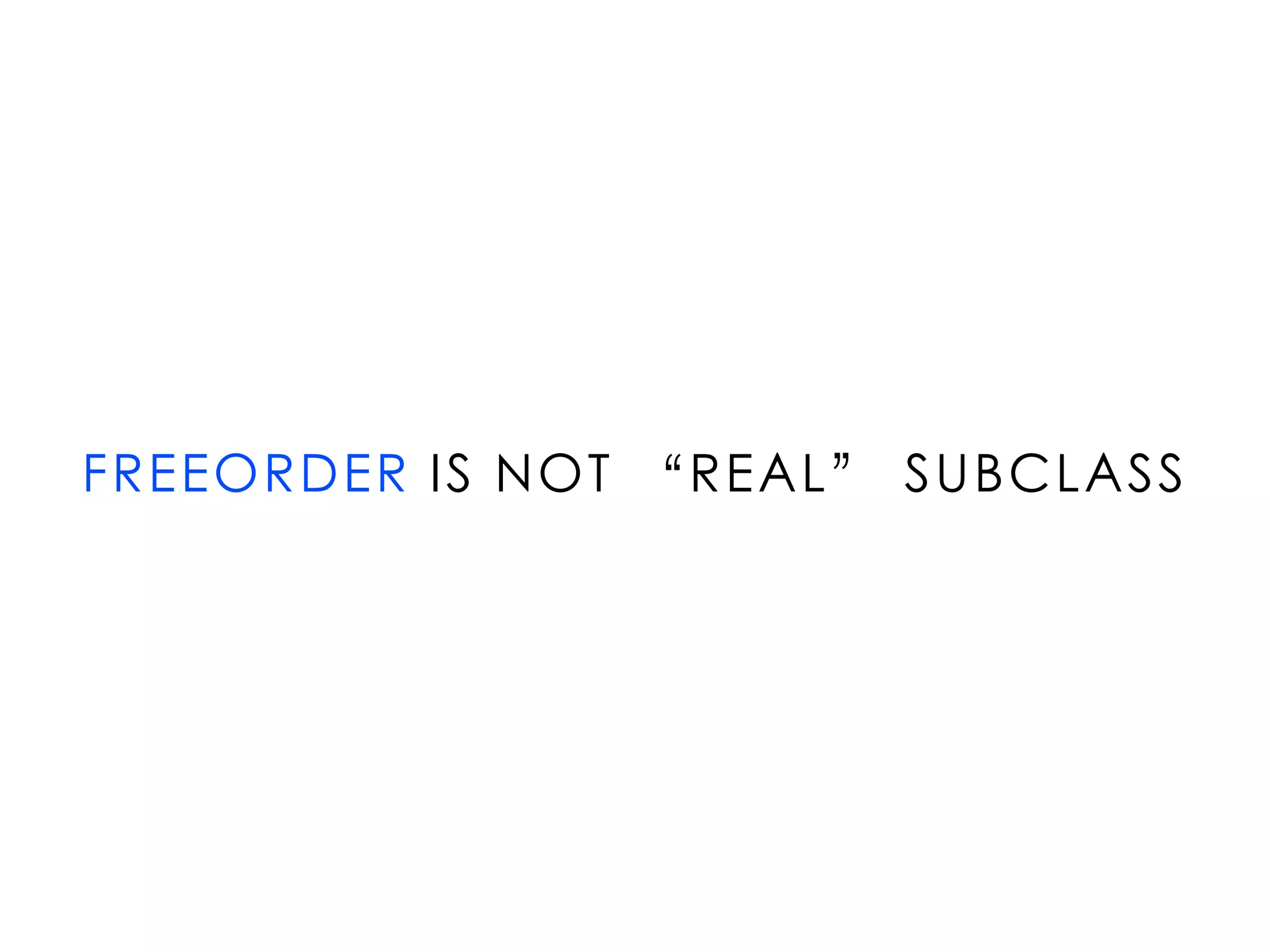

![BETTER CODE
abstract class ItemList {
protected items: Item[] = [];
public getItems() {
return this.items;
}
}
class Order extends ItemList {
public addItem(item: Item) {
this.items.push(item);
}
}
class FreeOrder extends ItemList {
public addItem(item: FreeItem) {
this.items.push(item);
}
}](https://image.slidesharecdn.com/solid-191213105207/75/SOLID-principles-with-Typescript-examples-27-2048.jpg)
